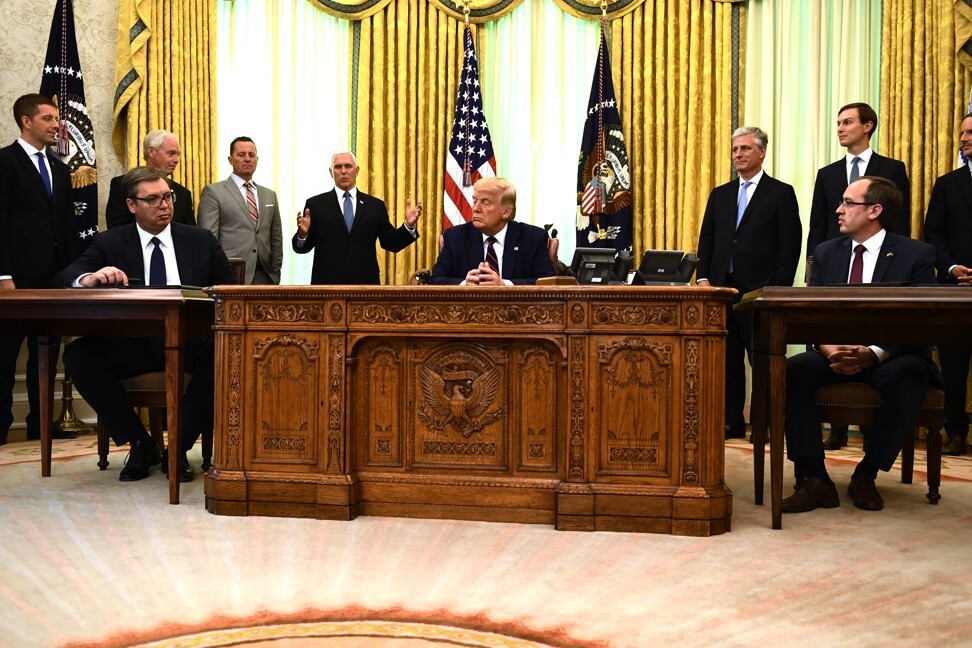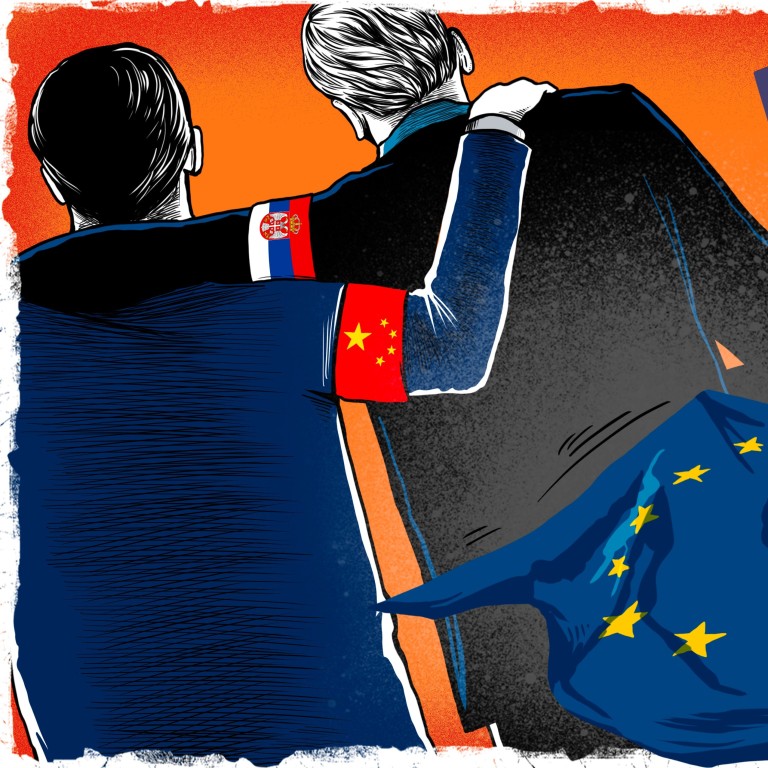
Serbia gets Washington’s attention as China builds influence in Balkans
- Donald Trump’s deal with Serbia and Kosovo hints at greater US spending in a region where China has invested billions
- But the goodwill between Belgrade and Beijing remains evident, despite some wariness from the EU, which Serbia aims to join
As US-China rivalry intensifies, European states have found themselves caught in the middle. The Post looks at how countries on the continent are responding, ranging from anti-China, to China-friendly, and those trying to walk a line between Washington and Beijing. The fourth in the four-part series looks at Serbia. Read part one, on Portugal, here, part two, on the Czech Republic, here, and part three, on Greece, here.
The deal marked a new chapter in US-Serbia relations, strained for decades due to Washington’s role with Nato in supporting Kosovo during the conflict.
As Serbian President Aleksandar Vucic and Kosovo Prime Minister Avdullah Hoti sat with Trump for photographs in the White House on September 4, one country not in the picture was China. But analysts say the Chinese government’s hefty investments in Serbia are a prime factor driving US policy in the Balkans region of southeastern Europe.
How much debt has the Belt and Road Initiative accrued, and what’s next?
However, less than two weeks after Vucic returned from the US, Serbian Prime Minister Ana Brnabic attended the opening of a Huawei innovation centre in the capital Belgrade, at which she said the firm was one of Serbia’s best and largest partners.
Brnabic’s speech was one of several “olive branches” to Beijing after the US visit, showing the government was aware of the anti-China implications of the agreement in Washington, said Stefan Vladisavljev, programme coordinator of the Belgrade Security Forum.
“That is probably the smart thing to do, because you don’t want to get on the bad side of the Chinese at the moment when you have numerous infrastructure projects being implemented, when you have several billion dollars in foreign debt towards China,” he said.
Bordering four EU member countries and larger than many of its Balkan neighbours, Serbia is a prized part of Beijing’s “hub-and-spoke” strategy for access to the EU market, said Heather Conley, former deputy assistant secretary of state in the US bureau of European and Eurasian affairs.
Vladisavljev in Belgrade agreed, saying Beijing’s level of engagement with Serbia was “seven levels above” what it had with any other country in the Western Balkans.
Since 2007, China has poured US$29 billion into eastern European infrastructure projects, and Serbia has received by far the largest share of it, at US$10 billion, with Hungary second at US$4 billion, according to a February report by the Centre for Euro-Atlantic Studies, a Belgrade-based think tank.
What’s more, Serbian opinion polls have suggested a rise in favourable views towards China, partly thanks to medical aid received from Beijing in March to combat the Covid-19 outbreak.
Vucic called a press conference and said the aid was the “brotherly” response of Chinese President Xi Jinping. Shortly after, the streets of Belgrade were decked out with red billboards, showing pictures of Xi with Serbian messages of gratitude.
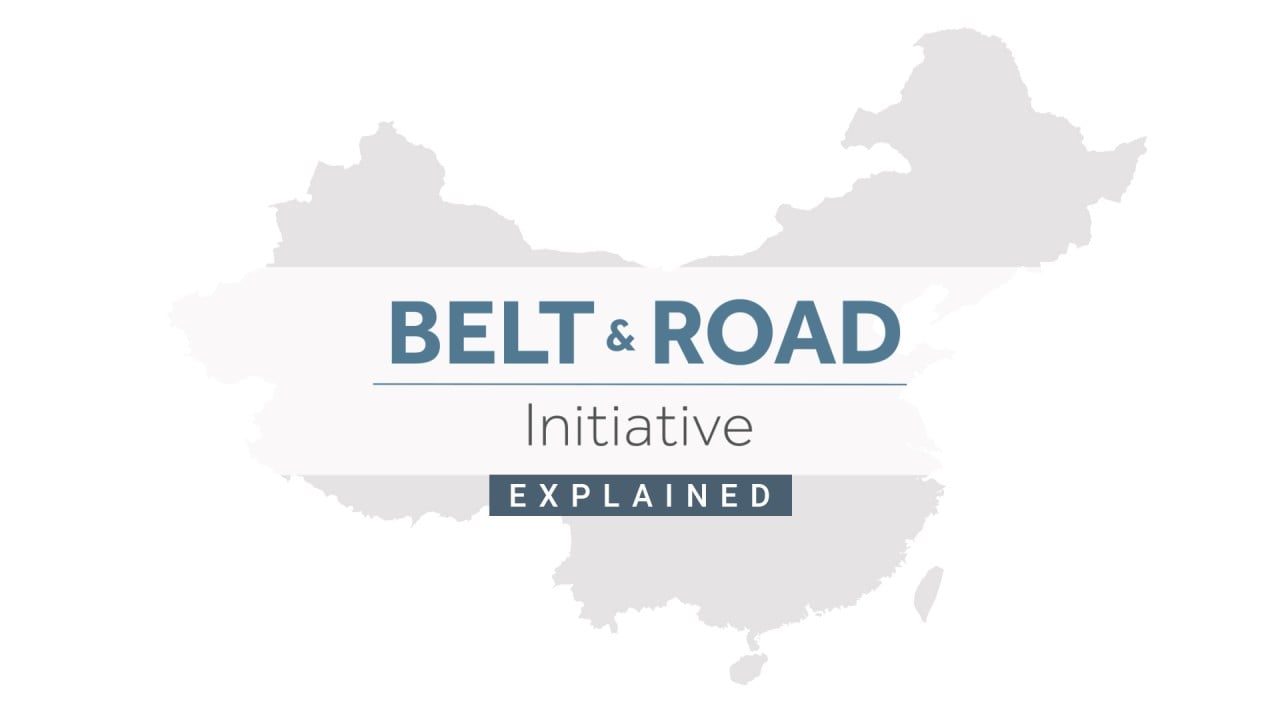
02:35
Belt and Road Initiative explained
However, the Centre for Strategic International Studies (CSIS), a Washington-based think tank, cited government data that showed the EU is by far the largest donor of aid to Serbia, at €1.8 billion (US$2.1 billion), with the US coming in third. Since 2009, China has delivered on 12 per cent of its pledged aid to Serbia, or €6.6 million out of €56 million, the CSIS said.
Serbia points to its largest steel producer, Smederevo, as an example of China’s role in supporting its economy.
US Steel formerly ran Smederevo, but sold it back to the government in 2012 for a token dollar after a global drop in steel prices. China’s Hesteel Group, the world’s second-largest steelmaker, stepped in and bought the company for €46 million in 2016, saving 15,000 jobs.
“Serbia and China are bound by a friendship made of steel,” Vucic said during talks with Xi in April last year. “We owe great gratitude both to you personally and to China for everything that you have done for Serbia.”
In an interview with the South China Morning Post, Nikola Stojanovic, foreign policy adviser to Brnabic, said Smederevo was a model of cooperation for both countries, adding that although “China can never be put in first place like the EU”, building ties with China was “complementary”.
But with Serbia seeking admission to the EU, its deepening ties with China are raising alarm in Brussels.
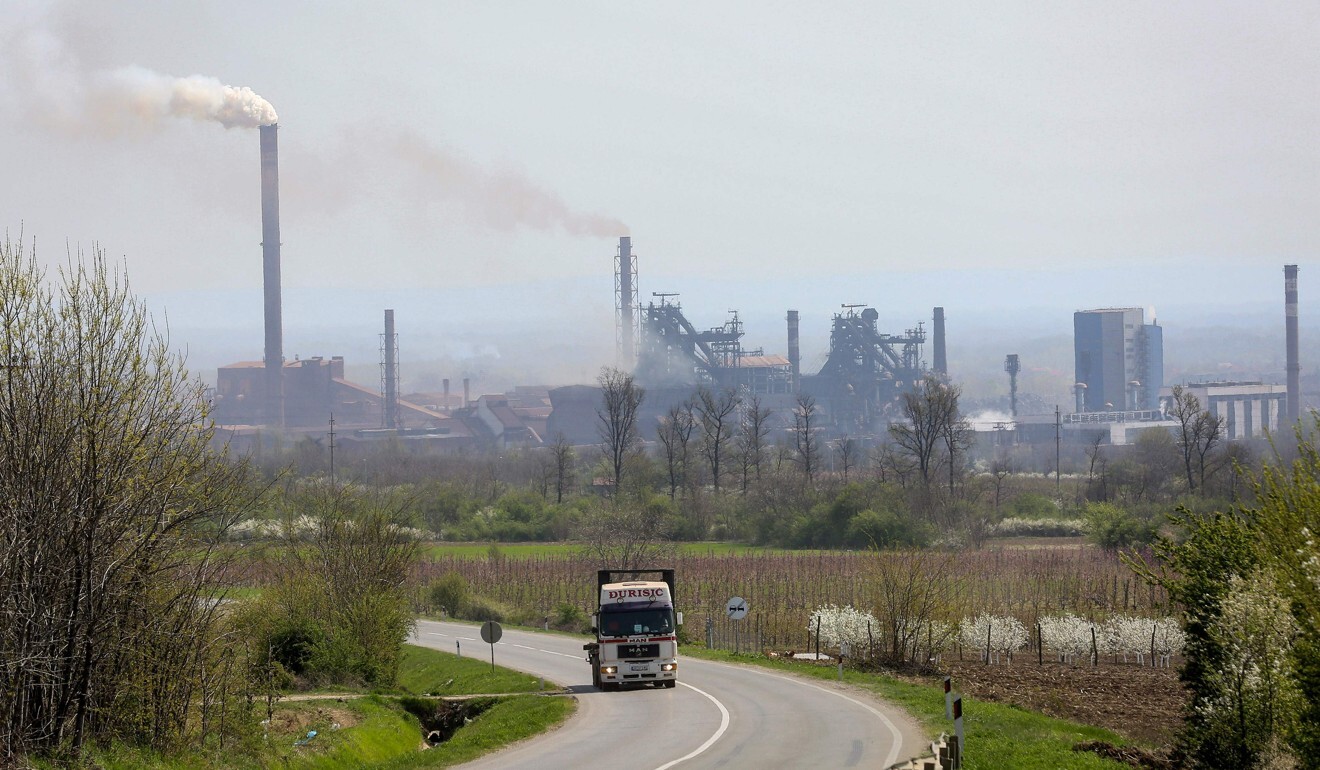
In 2018, Johannes Hahn, then the EU commissioner vetting prospective new member states, told Politico in an interview that the bloc should guard against China turning the Western Balkans into a Trojan horse. China’s “combination of capitalism and political dictatorship” could appeal to some leaders of the region’s countries, he said.
That was a theme echoed in September in a report by the CSIS, which argued that Chinese investment in Serbia was slowly turning the nation into a “client state” subordinate to Beijing.
Former US diplomat Conley, now senior vice-president for Europe, Eurasia and the Arctic and director of the Europe programme at CSIS, said that contrary to Belgrade’s narrative, the loans Serbia was taking from China were not cheap, while Chinese firms investing in Serbia were employing Chinese rather than Serbian labour and were not saving industries.
“We highlighted the fact that it was actually the Serbian government that presents these loans, which must be paid back, as gifts – this is where we transition to the ‘client state’,” Conley, who co-authored the report, said.
China’s economic activities have solidified Serbia’s support for Beijing’s foreign policies, while strengthening patronage networks in Serbia and undermining EU integration, the report said.
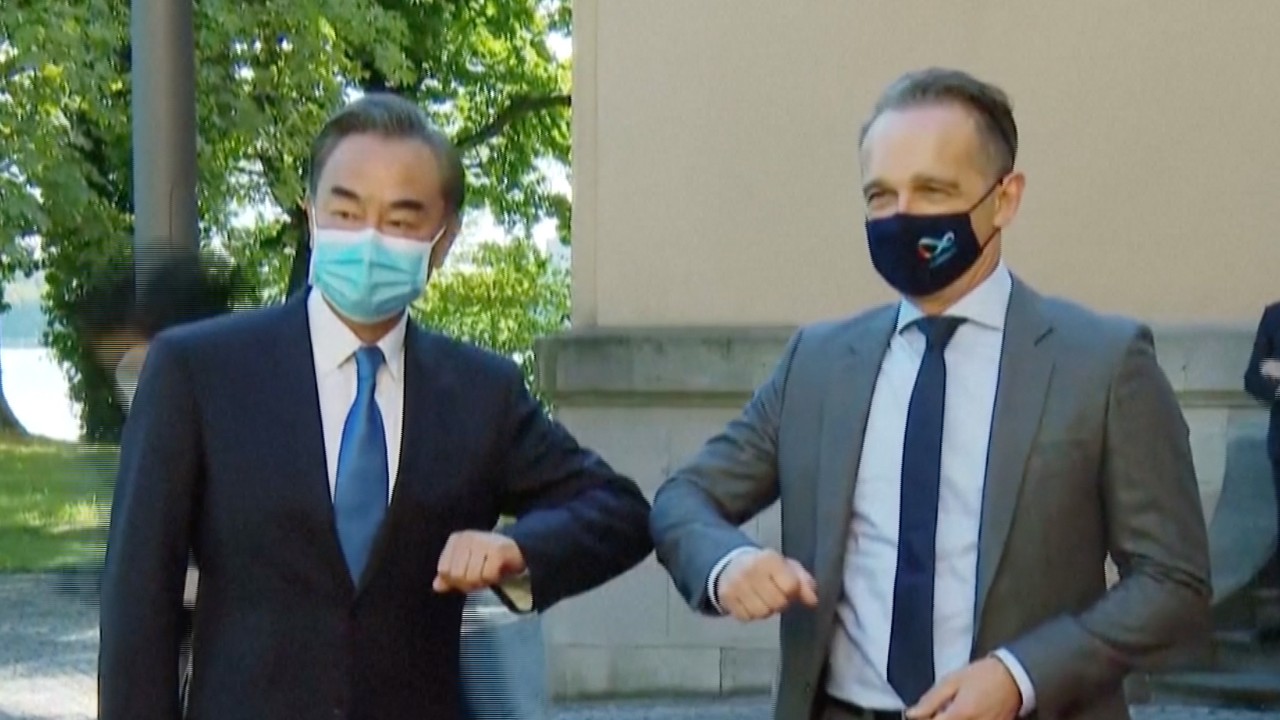
02:56
Germany presses China on Hong Kong security law, seeks access to Uygurs in Xinjiang
Stojanovic, from the prime minister’s office, said that issue needed to be seen in the light of China’s support for Belgrade’s policy of not recognising Kosovo as an independent state. Currently, 51 per cent of UN member states recognise Kosovo, including the US and 22 of the 27 EU member states.
Dragan Pavlicevic, an associate professor of China studies at Xian Jiaotong Liverpool University in China, said Beijing was aware of the EU’s concerns, pointing to the so-called 17+1 initiative set up by China to promote investment and relations with 17 central and eastern European states.
“If you look at the 17+1 framework, you have people from the EU being invited, you have commitments being put in the official documents every year that say it is expected EU members of 17+1 will uphold EU standards and so on,” he said.
“China is not interested in being regarded as an enemy, as someone who is trying to eat the EU’s cake or sow discord, so from their side they are trying to close this gap, they are trying to present themselves as a partner rather than a strategic threat.”
But Trump’s brokering of the Serbia-Kosovo deal was a sign that the US is set to invest more in the Balkan region through its International Development Finance Corporation (DFC), a government body set up in 2019 in part to counter China’s belt and road. The DFC has since opened its regional Balkans office in Belgrade.
The Czech Republic’s relationship with China? It’s complicated
Stojanovic said the US was welcome, adding that the DFC’s planned projects in Serbia were already worth several billion dollars.
“We really want to improve relations with the US,” he said. “We’re not picking sides, we’re trying to get entangled with as many sides as possible.”
But Vladisavljev at the Belgrade Security Forum said Washington would have its work cut out trying to prise Belgrade away from China’s economic orbit.
“We will have to see what is the level of the US presence here in Serbia, but China is a decade ahead,” he said. “I don’t think Serbia will pick a side any time soon.”






